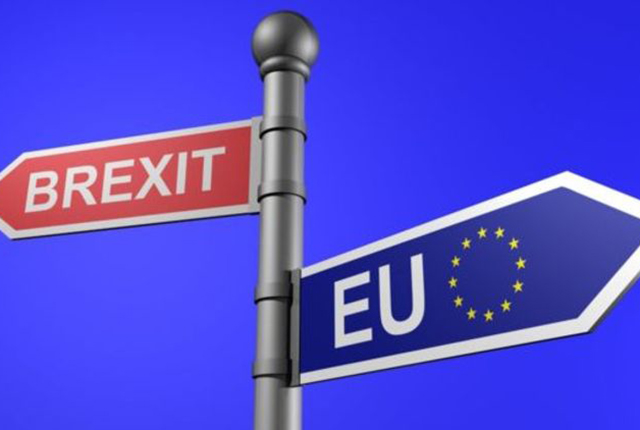Zim Cricket shatters the political walls of Albion


This autobiography by Duncan Fletcher, a former Zimbabwe captain who was now coach of the England cricket team, reveals that English cricketers have repeatedly been forced by their government not to tour Zimbabwe because, according to the politicians, doing so would be an endorsement of the political leadership in this country which they oppose with their fallout rooted to the land reform exercise
Robson Sharuko Senior Sports Editor
ZIMBABWE’S cricketers left Scotland yesterday after a short tour pregnant with more political, than sporting, significance as the wall of shame erected by some British politicians, who were using cricket as part of their ammunition to create a gulf between the two countries, tumbled in spectacular fashion. The Chevrons and their hosts shared their two-match ODI contest 1-1, but away from the runs scored and wickets captured at Edinburgh’s Grange Cricket Ground, a bigger political story unfolded.
The tour marked the first visit by the Zimbabwe national cricket team to British shores since the Chevrons were in England in the summer of 2003 for two Tests and a NatWest ODI series that also featured South Africa.
Since then, a lot has happened, with the relationship between Zimbabwe cricket and British cricket being poisoned by politicians, in London, who converted the high-profile sport into a pawn for their political battles against this country’s leadership.
English cricketers have repeatedly been forced by their government not to tour Zimbabwe because, according to the politicians, doing so would be an endorsement of the political leadership in this country which they oppose with their fallout rooted to the land reform exercise.
The British politicians — working in conjunction with some local opposition politicians — had ganged up to influence England not to travel from their Cape Town base to Zimbabwe for a 2003 World Cup match against the Chevrons.
Duncan Fletcher, the former Zimbabwe captain who was now coach of the England cricket team during that World Cup fiasco, revealed the political connections in his autobiography, Behind The Shades, saying he was awoken at 3.30am by the then England cricket chief Tim Lamb, who told him he wanted the team to travel to Harare.
“And I agreed, I told him so then,” Fletcher wrote in his book.
“The situation turned political, nothing at all to do with cricket.
“Then came the famous letter from the Sons and Daughters of Zimbabwe, threatening the players: “Come to Zimbabwe and you will go back to Britain in wooden coffins.”
“That certainly scared many of the players. But from the moment I heard it, I considered it a hoax. End of story. I was brought up in war-torn Rhodesia, so I was used to an environment of fear, but the players were not, so I could understand their apprehension.
“If there was one slight element of frustration in my mind, it was that I doubted whether the players really knew what the situation was like in Zimbabwe.”
And in 2008, the Zimbabwe Cricket leadership — then under chairman Peter Chingoka, who had been handed an EU travel ban, and managing director Ozias Bvute — were forced to make a huge compromise of withdrawing the Chevrons from the ICC Twenty20 World Cup in England after complications, related to the team’s participation, arose.
The British government had told the ICC they would not issue the Zimbabwe team with visas to enter England but, with India throwing its weight behind Zimbabwe, the issue threatened to force the withdrawal of the tournament from England until a compromise was struck.
“The Zimbabwe delegation were aware of the decision of the British Government not to allow the series in England in 2009 to go ahead,’’ the ICC said in a statement.
“They have also taken note that the British Government is likely to refuse to grant visas for the Zimbabwe cricket team to take part in the ICC World Twenty20.
“Therefore, the Zimbabwe delegation have decided to recommend to their board that the team should withdraw from that event. Zimbabwe will not suffer financially as a result of the team’s non-participation in the ICC World Twenty20 2009.
“The Zimbabwe delegation have agreed to take this decision in the greater interest of world cricket and the ICC.’’
Chingoka said they had voluntarily pulled out of the event in the wider interests of the game.
“Zimbabwe has agreed not to participate in the Twenty20 world championships in the wider interest of cricket,” Chingoka said.
“But we will continue to be a full member of the ICC and welcome any team that wants to play against us.
“We voluntarily agreed to back out of the Twenty20 Cup because we were told we won’t get visas to England. We don’t want to gatecrash where we are not welcome.’’
And just seven years ago, the British government put a lot of pressure on Scotland Cricket to force that country’s cricketers from touring Zimbabwe saying such a visit would be an endorsement on this country’s political leadership.
Such was the severity of the pressure that Scotland Cricket even suggested, as a way of saving those matches, that the games be played on neutral soil in South Africa, but Zimbabwe Cricket refused those overtures and the tour was cancelled.
Chingoka and Bvute argued that politics shouldn’t be allowed to mingle with sport and, at a time when the country had already found a way to build bridges with all other nations except Britain — the then ZC leaders steadfastly refused to be abused to boost the interests of British politicians.
“The decision is regrettable. We have consulted with our various authorities who have all ruled out the possibility of these matches being played at a neutral venue,’’ Bvute said back then.
And, after the Chevrons completed their tour of Scotland — which went ahead questions, inevitably, have to be asked?
- What has changed now that we had all this silence, on all fronts, which was deafening given all that toxic baggage of the past 15 years whenever the possibility of such a contest cropped up?
- Why did the same British government which, refused to issue visas for the Chevrons to play at the 2009 ICC Twenty20 World Cup, find it acceptable now to issue those visas for the team to play in Scotland?
- Why didn’t we see the baggage of hysterical and toxic British media headlines, which had become a part of the narrative of any proposed cricket showdown between Zimbabwe and the British isles, in the recent past?
- Why didn’t we hear all the barking from the British politicians, which had come to be the soundtrack of any proposed cricket matches between Zimbabwe and any British side, in recent years amid a wave of opposition to such matches?
- Isn’t the same political establishment that the British politicians said they were against still in charge of this country and, maybe, does this provide political analysts here with a subject to explore about the possibility of some changes in the policies of the politicians in London towards this country?
- Or has the usually critical British media finally ran out of ammunition to sustain their lengthy battle, to use cricket, as part of their attacks on this country?
- Does this probably open a window of hope for the Chevrons to, finally, play a Test cricket match against England since their last meeting in 2003?
“I remain of the belief that sport can build bridges and I have confidence that it can also act as a catalyst for healing and national unity.
“It is with this in mind that we hope that in the not too distant future, all the strained sporting relations will be restored for the common good of all,” Bvute remarked when Scotland were barred from coming here.
Now that the Chevrons have just toured Britain, maybe, he was right that this impasse had to end for the good of not only of sport, but both countries.







Comments